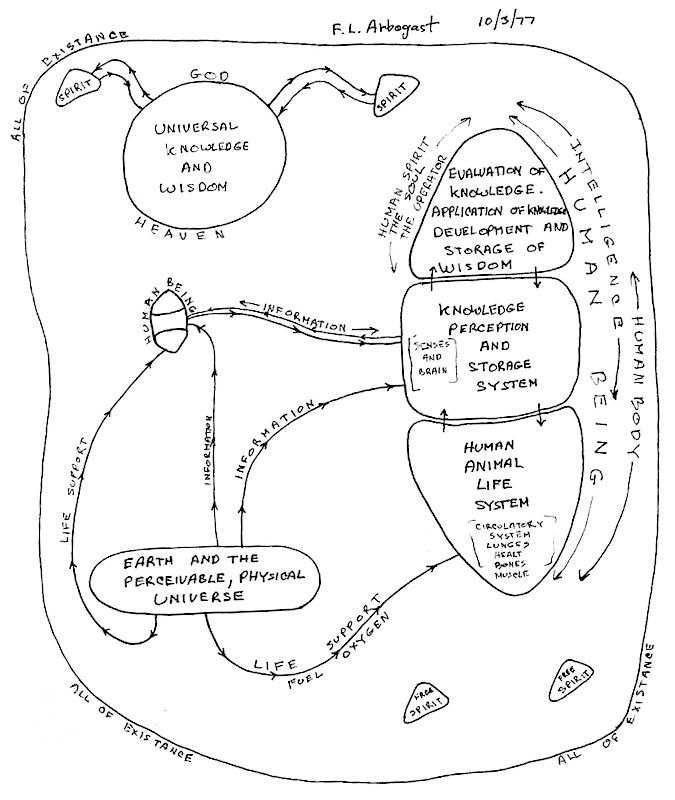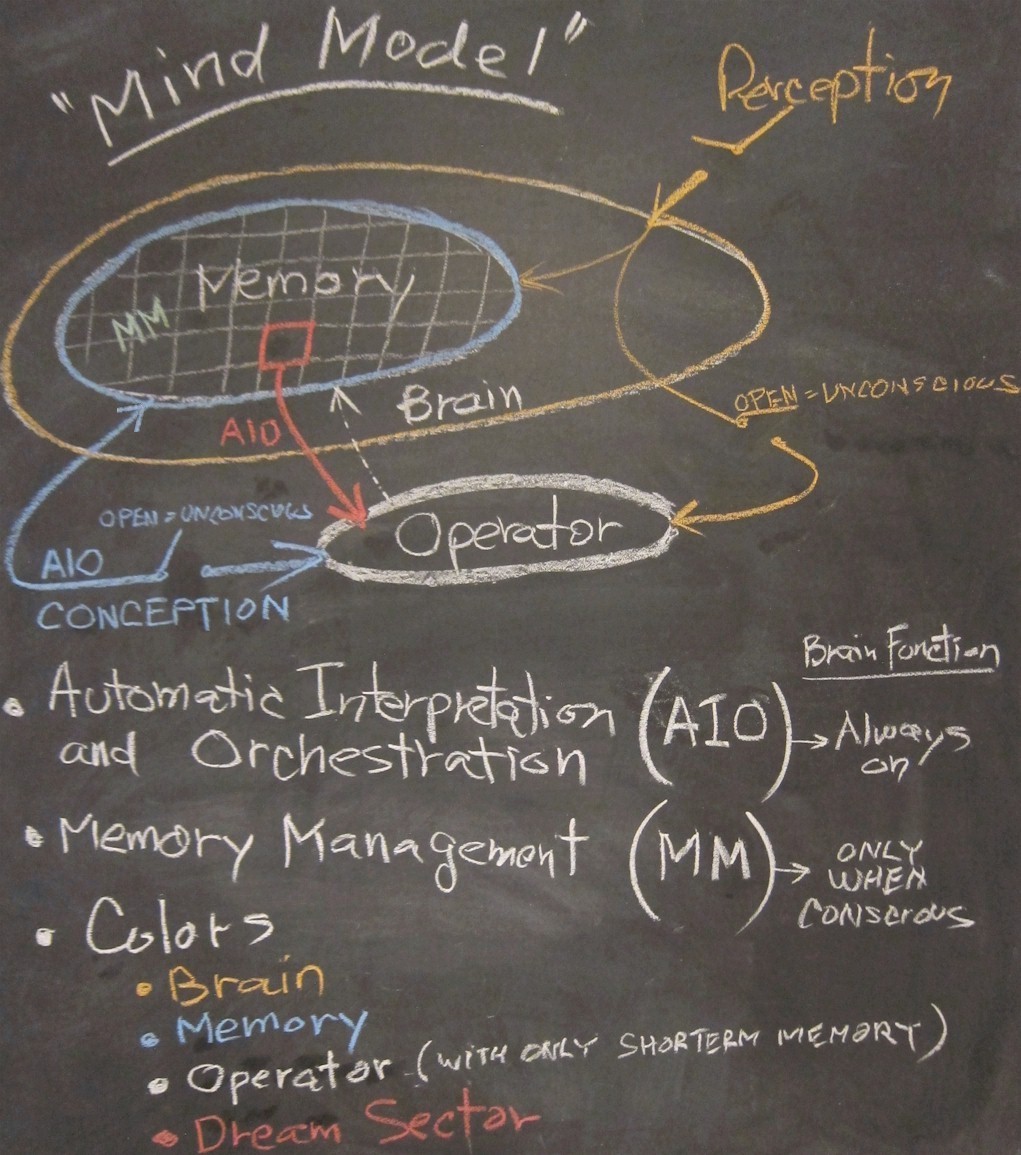|
The Mind Model By Fred Arbogast, BSChE, UC Berkeley
|
|
The mind is a mystery. It can be said that "we" who operate it are
undefined, even unknown. So
this obscured part of the human being is very interesting and deserves
a deductive inquisition.
Throughout history, humans have invented religion to explain
the Science
and medicine have provided much information about the human body. For
example, here's what must be an electron micrograph image showing
actual neurons inter-connected in the "soup" of
the human I've wondered about dreams and why they seem so strange. You know . . . the identity of the person of interest in the dream sequence might be known . . . but then they "morph" into another person's appearance . . . or your trying to get to a plane but can't find the way . . . or you're naked and exposed . . . or you're on the crest of a title wave . . . etc., etc. Our memories are not stored hierarchically like a telephone book or a dictionary. They are held redundantly, related to varying groups of memories, in different ways at numerous locations throughout most of the brain. A relational database used by some computers is similar. This architecture provides a great advantage for humans since it facilitates rapid information access and a comprehensive understanding of relationships for processing thoughts when conscious. However during sleep, Operator navigation and Memory Management (MM) stops. My theory is that when unconscious, the Operator is "parked" in a region or sector of the brain's stored memories and able to search only local, semi-complete information. The brain seems to have the ability to conjure up a logical result from insufficient information. This function is operational whether the human is awake or asleep. For example, walking in semi-darkness once, I viewed a person way up the road. As I got closer it appeared to be a man walking my way. But when I got much closer it was really a fire plug with a sign at head level. My brain did it's best to identify the item, but the conclusion was wrong. Day dreaming can provide a similar experience. And . . . when sleeping, you guessed it . . . this same ability to use the best information available from the "parked" Operator's location, produces a real dream, strange as it may be. I call this brain function "Automatic Interpretation and Orchestration" (AIO), and it is always functional whether we are conscious or unconscious! I have thought and written (to myself) about this for many years now. For the background and details, go to greytrek.com and click on Spirit Quest. The Contents page and Introduction will explain my interest and sometimes endless, boring analysis, plus trial and error thinking. Here I've summarized some of my conclusions: The Human Spirit (Operator)
The Human Brain
Here's the Mind Model concept sketched on a chalk board!
So now . . . how does The Mind Model fit into a total picture of the human being (?), and . . . how does the human being fit into all of existence? Maybe God is really there!
Here is my idea of Existence:
Here is a 9/3/2020 Process Diagram of the Mind Model
The Subconscious Mind
This is a term that has come from the experts and I really have not explored this much. But it may refer to the processing of memories that human beings have repressed and somehow the normal "Memory Management" system is not equipped to permit the "Operator" to go there. My supposition is that in very unusual times, or during hypnosis, the "Operator" can access and spend varying degrees of time processing the disallowed, or sequestered, or hidden, or embarrassing, or even extremely good memories apparently forgotten, but really just not normally available. There may be value systems that are deliberated while the "Operator" is "lurking" around the "secret memory banks" trying to evaluate, deal with, and perhaps even solve certain issues that have come up in the current life or before. This secret area may be where our individual personalities, with their positive or negative attributes, and their idiosyncrasies reside. This subconscious area of the mind is probably where certain past life or after death accounts have been discovered by Michael Newton, Eben Alexander and Ian Stevenson . . . although each of these researchers/authors have different opinions and experiences on these subjects . . . that is, Newton used hypnotism to explore patients' after-death testimonies, Alexander remembered his experiences after plunging into a one-week coma, and Ian Stevenson has a huge body of research leading to the conclusion that reincarnation can explain past life recollection by young children. So Subconscious Experience seems to be consistent with my Mind Model.
Send Comments to baut0@greytrek.com |
 great unknowns.
great unknowns. brain.
brain.

